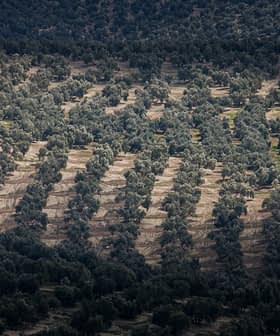The Spanish Association of Young Farmers and Ranchers (Asaja) has criticized the Ministry of Agriculture, Fisheries and Food’s (MAPA) financial aid plan to support the development of the country’s traditional olive growers.
Asaja said the funding to make the country’s traditional groves more competitive is “blurred and ridiculous” because it targets producer organizations and cooperatives rather than growers.
As long as the traditional olive groves are not financially aided, they will disappear completely. We were waiting for some aid to this sector to survive.
Asaja made these assertions after analyzing the ministry’s plan and concluding that it was not fit for purpose. The organization also prepared a series of proposals it intends to send to the ministry to help improve the interventions in the sector.
In their proposal, Asaja emphasized the need for the ministry to reconsider its strategy for financial aid. Chief among these is increasing the amount of money dedicated to the project. Asaja said the proposed €30 million is insufficient.
See Also:Spain and Portugal Request European Aid to Fight Ongoing Drought“Given the complexity of its application, we are very much afraid this help will end up being lost since, in addition to being little money, it will not reach those who really need it, “ Asaja said.
Blanca Corroto, the president of Asaja-Toledo, told Agropopular that the €30 million “is an insignificant amount of money.”
“As long as the traditional olive groves are not financially aided, they will disappear completely,” she added. “We were waiting for some aid to this sector to survive.”
According to data from Juan Vilar Strategic Consultants, Spain has nearly 1.9 million hectares of traditional olive groves, which make up slightly more than 70 percent of all olive groves in the country.
The sector employs about 350,000 workers and generates €32 million in wages annually, making it a highly valuable industry.
In the new Common Agricultural Policy (CAP), the European Union and MAPA pledged to support the traditional olive grove in recognition of the critical role the sector plays in the olive oil industry.
Last June, Minister of Agriculture Luis Planas told the senate, “we will develop a specific program because it is very important for the sector’s ability to compete.”








